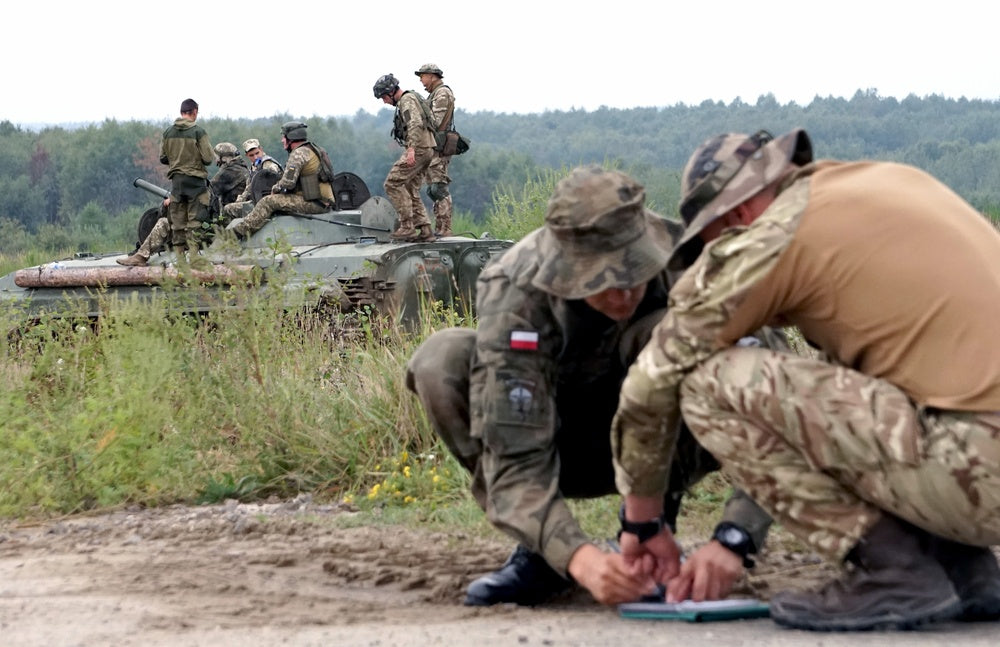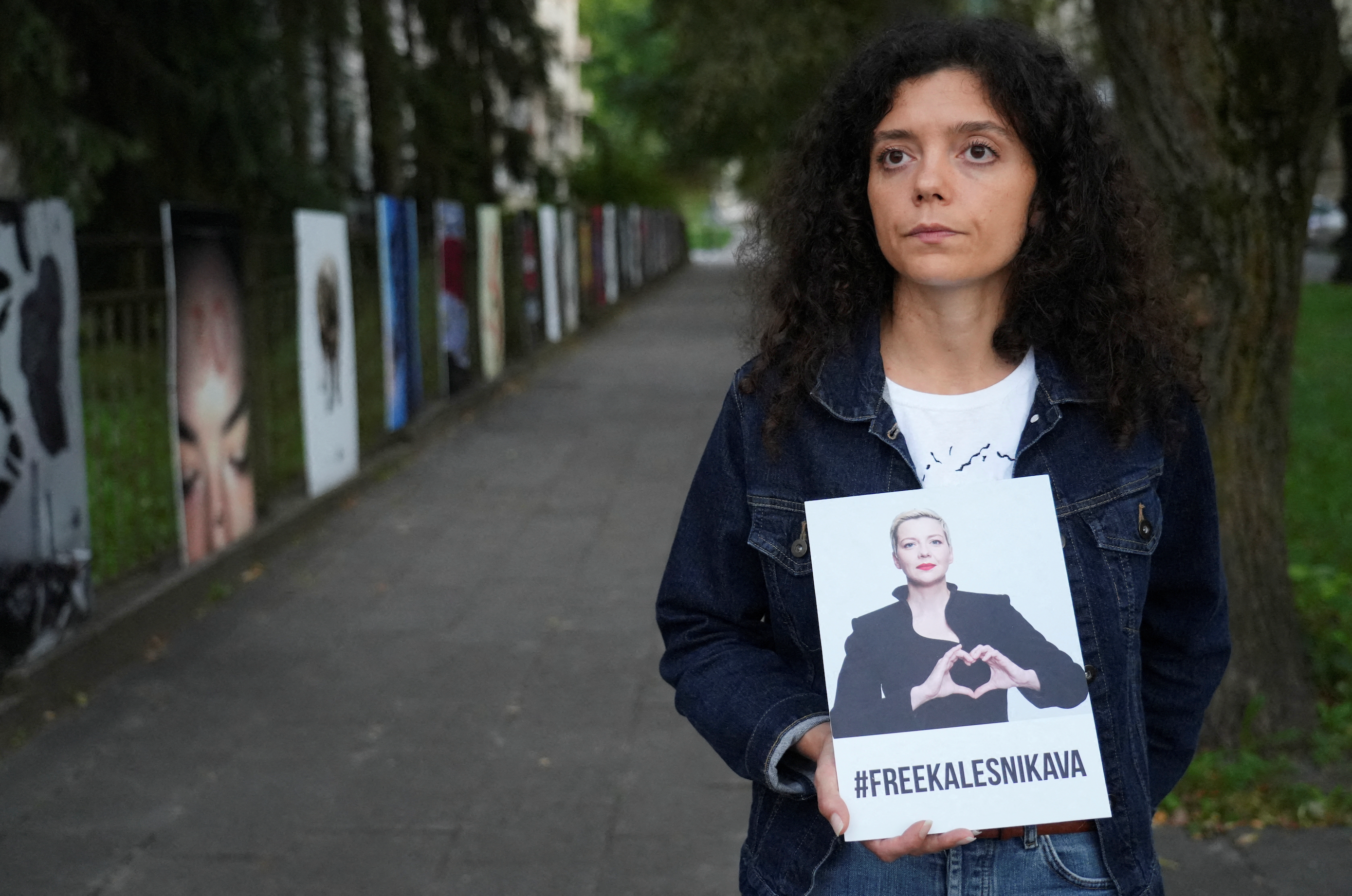
Poland hosts Blinken, joins calls to lift weapons restrictions on Ukraine
PHOTO CAPTION: Polish and Ukrainian troops are seen training together at the International Peacekeeping and Security Centre in Yavoriv, Ukraine, Sept 7, 2018. (U.S. Army National Guard photos by Army Spc. Amy Carle via U.S. Defense Visual Information Distribution Service)
By Daphne Psaledakis, Barbara Erling and Simon Lewis
WARSAW (Reuters) -Poland added its voice on Thursday to calls to allow Ukraine to fire Western-supplied missiles deep into Russia as it hosted U.S. Secretary of State Antony Blinken for talks in Warsaw.
Kyiv has been pressing the Biden administration and other Western governments to authorise long-range strikes that it says will help to counter Russia's relentless aerial attacks on Ukraine.
"We should continue to deliver advanced air defence systems (to Ukraine) ... and lift restrictions on the use of long-range weapons," Polish Foreign Minister Radoslaw Sikorski told a joint news conference with Blinken.
Blinken, winding up a visit to Europe, said he had held extensive discussions with Ukrainian officials in Kyiv on Wednesday about how they see the war developing and what their needs are, but declined to say whether Washington was ready to approve such strikes.
"What we learned from our Ukrainian partners will inform discussions that we'll be having with other allies and other partners in the days and weeks ahead, as we work through and think through the coming months," Blinken said.
It was fitting to begin such discussions in Poland, Blinken said, citing its staunch support for Ukraine.
Russia has warned that any decision to allow Ukraine to strike Russia with long-range Western missiles would deepen what it called the direct involvement of the U.S. and Europe in the war and would trigger a response from Moscow.
Russia's invasion of Ukraine has made defence a top priority for eastern members of the NATO alliance, and Poland has sought to strengthen the borders it shares with Belarus and Russia.
Relations between Poland and Russia have deteriorated sharply since Moscow sent tens of thousands of troops into neighbouring Ukraine on Feb. 24, 2022. Warsaw has ramped up defence spending in response and expects record defence spending in 2025 of 186.6 billion zlotys ($47.95 billion).
Blinken praised Poland for the increase, which he called the "gold standard" for members of the NATO alliance.
The top U.S. diplomat, who earlier this week also visited Britain, met Polish Prime Minister Donald Tusk and President Andrzej Duda as well as Sikorski on Thursday.
HYBRID ATTACKS
Warsaw has repeatedly accused Moscow of attempting to destabilize Poland because of its role in supplying military aid to its neighbour Ukraine, allegations Russia has dismissed.
Poland accuses Russia of orchestrating a campaign of arson, sabotage and cyberattacks. It has also accused Russia and its ally Belarus of orchestrating a migrant crisis on its eastern border. Moscow denies those accusations too.
Blinken said such "hybrid attacks" were "part of a deliberate strategy that Russia is engaged in" and that NATO allies were making sure this had consequences for Moscow, citing the broad sanctions imposed by Western nations since 2022.
He also praised Poland for its progress in transitioning away from Russian energy since the war began, and said he discussed with Sikorski ways that Washington could further this transition.
Poland said ahead of the talks with Blinken that cooperation on civilian nuclear energy, including building the first Polish nuclear power plant, would be on the agenda.
($1 = 3.8919 zlotys)
(Reporting by Barbara Erling, Daphne Psaledakis and Simon Lewis; Editing by Cynthia Osterman and Gareth Jones)












